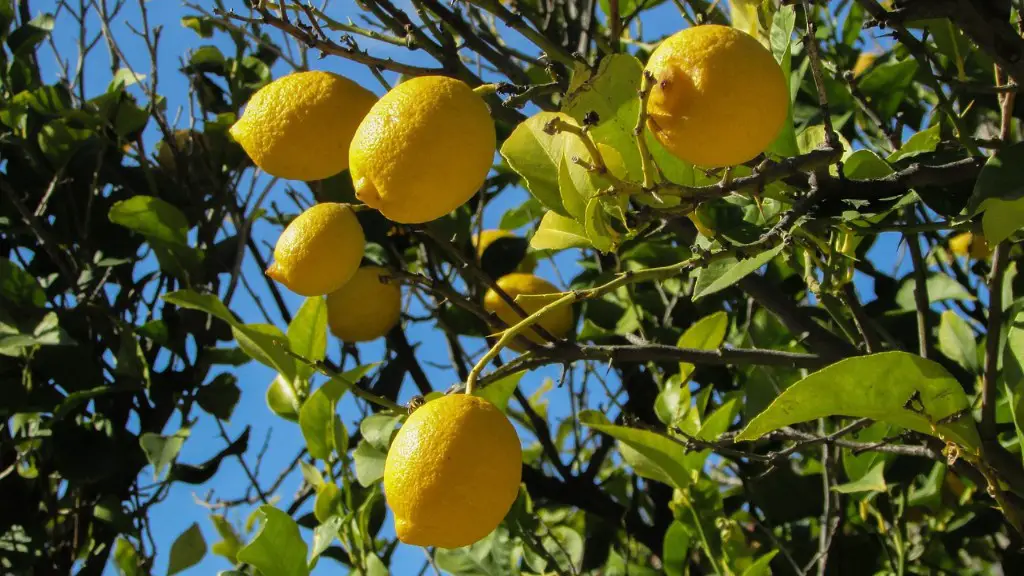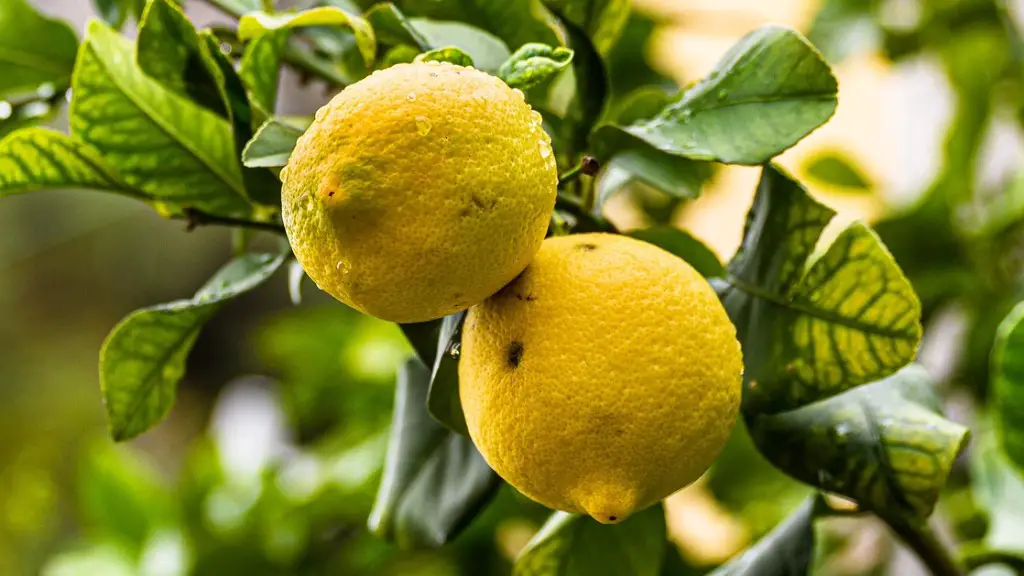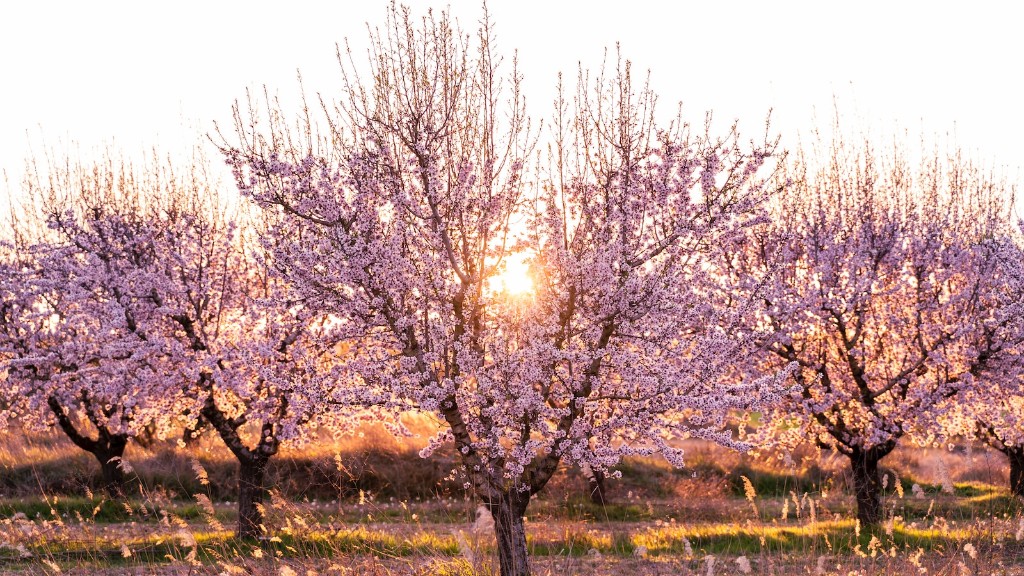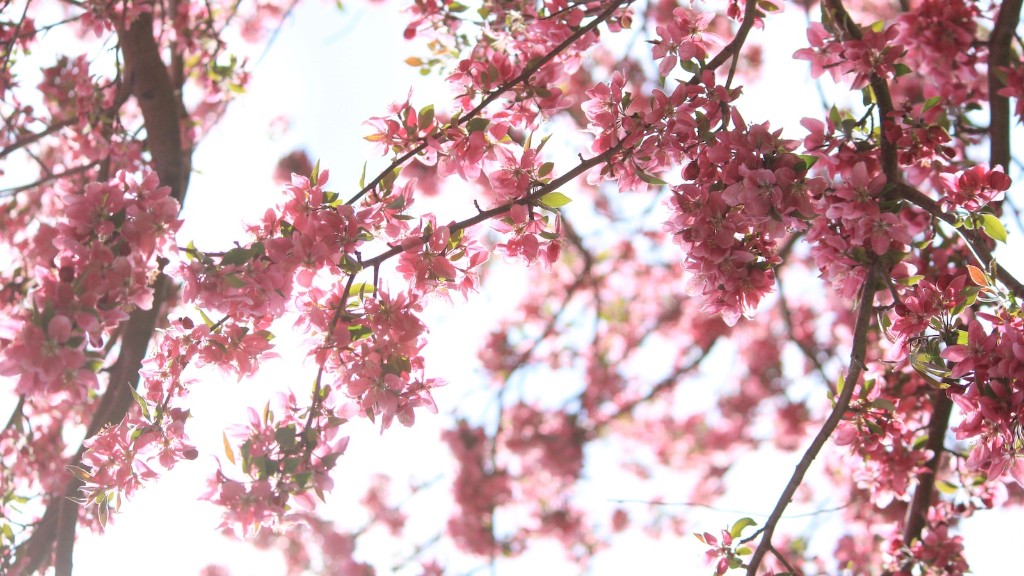Fruiting lemon trees are easier to achieve than many people think. Using a few simple steps, you can ensure your lemon tree yields plenty of juicy lemons. Lemon trees love warm temperatures and adequate water – with these two essential components taken care of, you’ll be well on the way to having a bountiful harvest. Here’s how to make your lemon tree fruit:
First, prune your lemon tree regularly to keep it at a manageable size and to help it stay healthy. Pruning also helps keep your lemon tree in shape to support more fruit. It also helps remove dead or disease-ridden branches and encourages new young growth, which is great for fruiting.
Next, provide your lemon tree with plenty of sunlight. Put it in a location that gets direct sunlight for at least six hours per day. If the area you live in does not get enough sunlight, you may want to consider installing grow lights for your lemon tree.
Third, fertilize your lemon tree properly with a fertilizer meant for fruit trees. Fertilize your lemon tree during the growing season with a balanced fertilizer such as 8-8-8 or 10-10-10. During the blooming season, you may want to apply a fertilizer with more nitrogen, like 16-4-8.
Fourth, water your lemon tree regularly and deeply to help it stay hydrated and healthy. Deep watering helps establish good root growth and will help your lemon tree fruit more vigorously. During the growing season, you should water your lemon tree deeply once per week and more frequently during prolonged dry periods.
Fifth, make sure your lemon tree is not overwatered or too crowded by other plants. Overwatering and overcrowding can limit your lemon tree from having enough root space to spread and absorb nutrients, causing it to produce poorly. It’s best to keep your lemon tree in a spacious area with good air circulation.
Finally, control for pests and diseases as soon as you notice them. It’s essential to keep a close watch on your lemon tree and to treat any problems quickly and effectively to ensure your lemon tree produces high-quality lemons. If you notice any pests or diseases, contact your local extension service for advice on how to treat them safely.
Growing Conditions and Soil Requirements
Though lemons can tolerate a wide range of soil types, they prefer well-drained, slightly acidic soils with a pH of 6.5 to 7.5. If the soil has too much clay or organic matter, or if it is overly alkaline, then you may need to amend it with sand, sulfur, or organic matter such as peat moss or compost. Additionally, ensure that your lemon tree has good drainage, as standing water can lead to root rot.
Lemon trees require warm temperatures for fruiting and grow best in temperatures between 60°F and 85°F (15°C and 30°C). Lemon trees also benefit from ample light. To ensure your tree is getting enough, it should be placed in indirect or direct sunlight for at least six hours a day. If your location does not receive enough sunlight, you may need to consider installing grow lights to ensure your lemon tree can fruit.
Finally, lemon trees love a steady supply of nutrition, particularly during the growing and blooming seasons. Regular applications of a balanced fertilizer such as 8-8-8 or 16-4-8 throughout the year, as well as higher-nitrogen fertilizers during the blooming season, will help your lemon tree to fruit successfully.
Temperature Requirements and Pruning
Lemon trees require a warm climate in order to fruit and produce juicy, delicious lemons. Temperatures between 60°F and 85°F (15°C and 30°C) are ideal for lemon trees. Anything below 60°F (15°C) or above 85°F (30°C) can damage the fruit, so be sure to provide your tree with a warm, sheltered location and adequate shade in the summer.
Regular pruning is essential for keeping your lemon tree healthy and for stimulating new growth and fruit production. Pruning helps to maintain the shape of the tree and encourages new growth, which is important for fruit production. Prune your lemon tree regularly to keep it at a manageable size and to improve its shape. When pruning, always be sure to cut back any dead or disease-ridden branches and remove any large, non-fruit-bearing branches to help stimulate growth.
Watering and Fertilizing Tips
Lemon trees need a steady supply of water to stay hydrated and healthy. During the hot months, water your lemon tree once per week and make sure the soil is moist but not soggy. During the cooler months, water your lemon tree when the soil is dry to the touch. Additionally, ensure that your lemon tree has good drainage and is not overwatered or too crowded by other plants.
Fertilizer is also essential for a healthy lemon tree and good fruit production. Use a balanced fertilizer such as 8-8-8 or 10-10-10 throughout the year, and during the blooming season, switch to a fertilizer with more nitrogen such as 16-4-8 to encourage new growth.
Underfertilizing can cause stunted growth, reduced yields, and poor fruit quality, whereas overfertilizing can lead to weak growth and an excessive amount of foliage. Always follow the directions on the fertilizer label carefully. Additionally, it is important to avoid using a fertilizer with too much nitrogen as this can cause poor fruit production.
Pests and Diseases
The most common pests and diseases that affect lemon trees are aphids, mealybugs, scale, whitefly, and mites, as well as diseases such as black spot and powdery mildew. If you notice any of these pests or diseases, it is important to treat them quickly and effectively to prevent further damage to your lemon tree. There are a variety of organic products available to treat pests and diseases, but make sure to contact your local extension service for advice on how to treat them safely.
Additionally, it is important to provide your lemon tree with proper care to make sure it stays healthy and produces high-quality fruit. This includes providing your tree with adequate light, water, nutrition, and a healthy environment. Finally, always make sure to keep an eye on your lemon tree so you can catch pests and diseases early and prevent them from causing damage.



